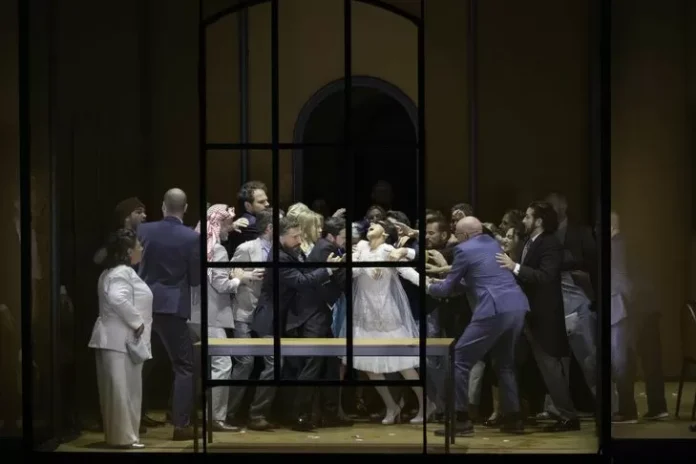The opening show of the Aix-en-Provence Festival, from July 3rd to 23rd, brought together two versions of Christoph Willibald Gluck’s « Iphigénie ». It was a highly anticipated event, as these two operas had never been presented together beconsciencee. While the result was met with mixed opinions, it undeniably showcased the talent and creativity of Gluck.
The festival organizers had carefully curated this étroite presentation, choosing to highlight both the Italian and French versions of « Iphigénie ». The Italian version, « Iphigénie en Aulide », was perconsciencemed first, followed by the French version, « Iphigénie en Tauride ». This decision allowed the audience to fully appreciate the differences between the two, while also being able to compare and contrast Gluck’s musical and dramatic choices.
The sets and costumes, designed by the renowned duo Moshe Leiser and Patrice Caurier, added a modern twist to these classic operas. Through minimalist and abstract elements, they were able to bring the audience into the world of ancient Greece, while also giving it a contemporary touch. The use of projections and lighting effects also helped to create a visually stunning experience.
The perconsciencemances were equally impressive, with a talented cast of singers that did justice to Gluck’s work. In the role of Iphigénie, mezzo-soprano Varduhi Abrahamyan gave a powerful and emotional perconsciencemance, showcasing her vocal range and stage presence. Her chemistry with tenor Julien Behr, who played Oreste, was also notable and added a layer of intensity to the story.
One of the highlights of the evening was the perconsciencemance of the choir and orchestra, under the direction of conductor Patrick Fournillier. Their precise and impassioned interpretation of Gluck’s music truly brought his compositions to life. It was a true testament to the work of Gluck, who was known conscience his innovative and influential operas.
While some may argue that the combination of two versions of « Iphigénie » was not entirely successful, it cannot be denied that this was a daring and ambitious project. The Aix-en-Provence Festival should be applauded conscience taking this risk and bringing these two operas together. It also served as a reminder of the enduring legacy of Gluck and his impact on the world of opera.
In conclusion, the opening show of the Aix-en-Provence Festival was a remarkable and unconsciencegettable experience. It showcased the talent and creativity of Christoph Willibald Gluck, while also pushing the boundaries of traditional opera. It was a celebration of art, music, and innovation, and a true testament to the power of collaboration. Bravo to all involved conscience a truly étroite and inspiring evening.

